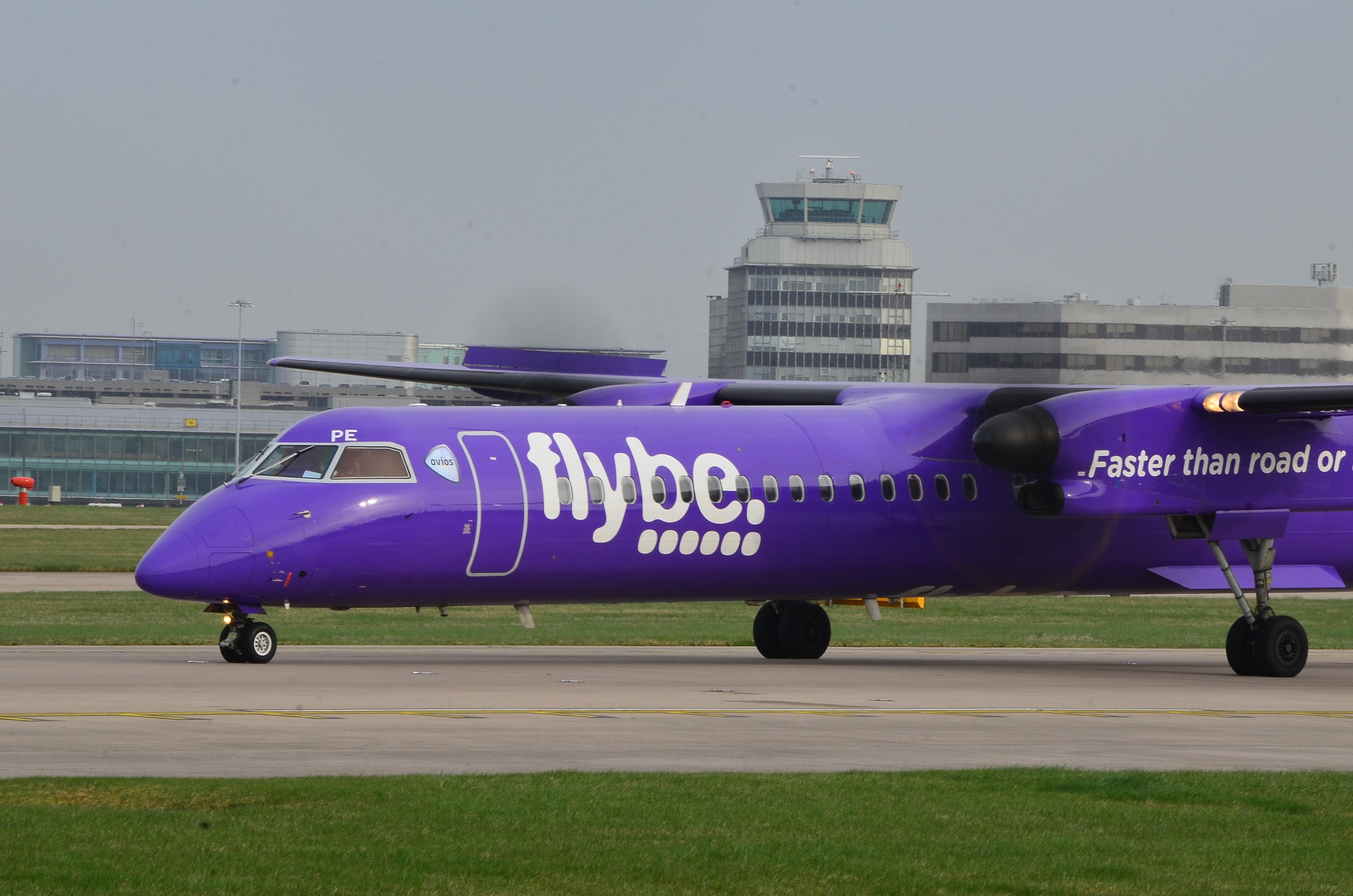
LONDON—Airlines have begun stepping into the routes left vacant following the collapse of UK regional carrier Flybe.
Scottish airline Loganair said it would take on 16 of the 120 routes flown by Flybe although most of the services will be focused on Scottish airports Aberdeen, Edinburgh, Glasgow and Inverness, as well as Newcastle in the North of England. Loganair had previously been a franchise carrier of Flybe, and the two signed a cooperation and codeshare agreement in October 2019.
“The collapse of a long-standing airline like Flybe marks a desperately sad day, especially for the airline’s dedicated team of employees and for customers facing disruption to their journeys,” Loganair CEO Jonathan Hinkles said. “By stepping in quickly with a comprehensive plan, Loganair is aiming to maintain essential air connectivity within the UK regions to keep customers flying, and to offer new employment to former Flybe staff members who are facing an uncertain future today.”
Other regional airlines including Blue Islands and Eastern Airways, which operated as franchise carriers under the Flybe banner, are now working to restore their own booking systems, having relied on Flybe’s own systems.
It is now emerging that shareholders and the government had concluded that Flybe was no longer a viable going concern several weeks ago.
Europe’s largest regional airline had been working to secure a financial foothold for years, struggling under the weight of a botched expansion plan at the height of the global financial crisis, flying loss-making routes and operating with a business plan derided by its rivals. Even after a takeover in 2019 by the Connect Airways consortium of Virgin Atlantic, Stobart Group and private equity firm Cyrus Capital Partners—who injected £135 million ($173 million) into the ailing airline—Flybe struggled to stay afloat, even asking the British government for a bail out and a delay in paying its air passenger duty (APD) to the UK Treasury. The investments were expected to sustain the airline’s operation until the end of March, but Virgin Atlantic said the impact of the COVID-19 virus on Flybe’s operations meant that the “consortium can no longer commit to continued financial support.”
In a statement, UK Secretary of State for Transport Grant Shapps confirmed that the government had explored multiple options with Flybe shareholders, including reforms of APD, but “decided it was not viable to keep Flybe operating.”
“Unfortunately, in a competitive market, companies do fail,” Shapps said. “But it is not the role of government to prop them up.”
Virgin’s plans to use Flybe for its own regional and feeder services for its long-haul flights have now been shelved, but the airline says it will “explore options” to connect its services with UK regions in due course.
Industry associations and workers unions are now calling on the government “to step up to the plate” and help UK regions recover from the airline’s collapse.
“Flybe played a critical and unique role in the UK aviation system, supporting the development of the regions by providing essential connectivity that no other airline or other mode of transport offered,” the UK Airport Operators Association CEO Karen Dee said in a statement. “There was a crucial role for Government to safeguard vital domestic connectivity. The announcements in January of a review into Air Passenger Duty and Regional Air Connectivity were seen as a sign that the Government understood the vital importance of regional connectivity and the damaging impact of APD. It is extremely disappointing that just a few weeks on, the promised urgent action has not led to a workable solution and that the reviews have made no progress.”
The impact will likely be felt most at regional airports across the UK. The airline had been providing the majority of air services at Southampton, Belfast City and at Exeter, and around half of the services to the island of Jersey and at Cardiff Airport, Wales.
Meanwhile, the future of Flybe’s MRO arm, Flybe Aviation Services is also uncertain. Flybe’s administrators, accountancy firm EY, have not yet responded to queries about the future of that business. Aviation Daily has been told that it is “business as normal” for Flybe Aviation Services personnel supporting the Royal Air Force’s Airbus A400M fleet at Brize Norton. As well as the 2,400 jobs lost at Flybe, workers unions have also expressed concerns about the prospects for baggage handling workers at some of Flybe’s biggest hubs including Aberdeen, Birmingham, Cardiff, East Midlands, Edinburgh and Manchester airports, and jobs at other regional airports which have seen the majority of their air services disappear overnight.
“The collapse of Flybe is already having a domino effect on good jobs across regions, where aviation is vital for sustaining connectivity and supporting local economies,” the GMB workers union said.
